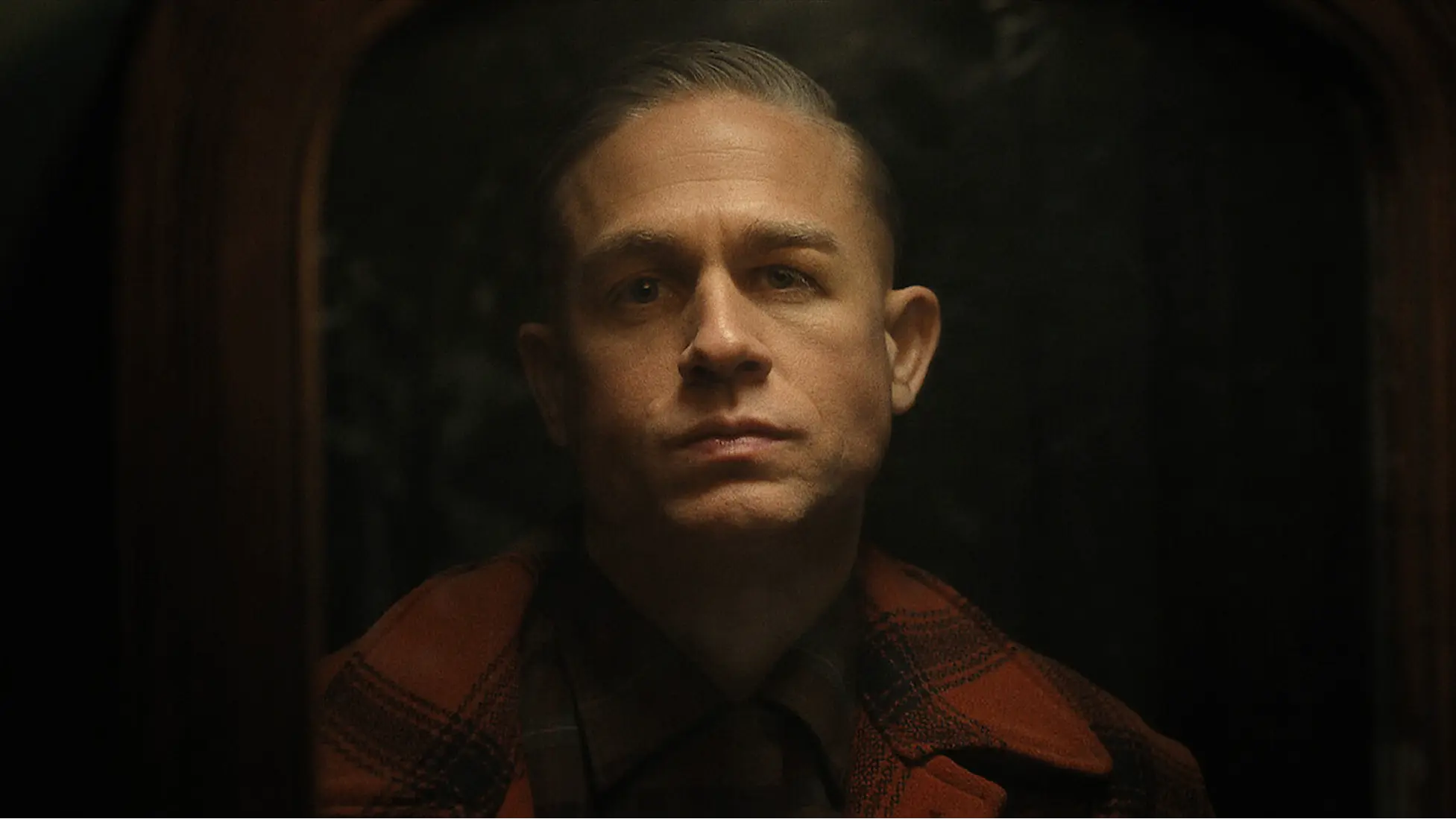Monster: The Ed Gein Story closes on a refusal, not a reward. In the final hour, Ed sits in Central State, newly and explicitly diagnosed with schizophrenia, as the series narrows to two turns that define the ending. First, his fantasies shift from gore to usefulness. The episode opens with a Lake Sammamish abduction sequence that plays like a Ted Bundy newsreel, then loops into a ward consult where federal agents let Ed narrate how to find a killer.
The scenes read as his managed delusion, not a true assist. Second, the story brings Adeline to his bedside. She admits manic breaks and vows to continue his work. Ed tells her not to. Monster: The Ed Gein Story frames this as the answer to its thesis about nature and nurture. The coda walks him through a dreamlike procession, a roll call of nurses, doctors and infamous figures. It ends on a porch vision of Augusta. She says, “Only a mother could love you.” He exhales. The cycle stops with a word.
Monster: The Ed Gein Story: Does Ed Gein break the cycle at the end?
Ed rejects Adeline’s inheritance, accepts his diagnosis and dies as a patient while the culture keeps his myth alive. That is the spine of Monster: The Ed Gein Story. The finale threads its plot beats through that choice. After the Lake Sammamish opener, the camera finds Ed in isolation, the diagnosis finally spoken aloud in the quiet of a hospital room. He is told the cancer is winning. He wonders why his story made money for everyone else while he sits behind a door that never quite closes. Monster: The Ed Gein Story then incorporates a consultation that showcases his expertise. He talks about blades and search grids.
He explains how a predator blends with a crowd. None of it plays as verified reality. It plays as a contained fantasy that staff can redirect. That pivot from violent tableau to imagined usefulness matters. The show argues that the mind that once built trophies now builds stories to feel necessary.
The centerpiece is Adeline. She visits with a confession and a proposal,
“I will carry on your work.”
The line lands with the weight of a bequest. Monster: The Ed Gein Story lingers on Ed’s face before he answers,
“You should not.”
That reply is the ending in miniature. The series has tracked Augusta’s iron grip, her catechisms about sin and women and the way isolation calcified into delusion. It has also tracked the world’s appetite for Ed. The hospital has staffing cuts that frame neglect. He gets letters that needle his infamy. In one scene, he jokes about never earning a cent from Psycho. Then the dream walk begins. Monster: The Ed Gein Story stages a slow procession through the ward. Nurses and orderlies drift by. Faces of killers appear like masks in a hallway.
The images are heightened and cold. The show is careful with words. The clearest ones come from Augusta. She says,
“You changed the whole world”
Then the line that has haunted him for years,
“Only a mother could love you.”
The porch is a memory that doubles as a mercy. The monitor tone is soft. The credits answer the headline question. He breaks the cycle once, in time, and only for the person in front of him.
Why the refusal matters and what the finale is saying
Monster: The Ed Gein Story uses that to close two loops. The first loop is personal. A son formed by devotion and fear finally says no to the script that hurt him and others. The second loop is cultural. The show has spent its season mapping how the world keeps Ed alive in stories, from tabloids to film. The Bundy fantasy is a message about that ecosystem. Ed’s mind reaches for a role that feels useful.
The series allows him to have the scene within the delusion while pointing the audience back to the frame. He is still a patient and his usefulness is pretend. The refusal to Adeline is the only place he has real agency. It is small and it is final. The images that follow are a hedge against easy redemption. The processional dream and the porch goodbye say the harm is not undone. They also say the handoff stops here. Monster: The Ed Gein Story ends on a moral that is quiet and specific.
Fact versus fiction in Ed Gein's history
Ed Gein confessed to two murders in Wisconsin. He robbed graves. He was found insane and confined. He was later deemed fit, tried for the murder of Bernice Worden, and returned to care after a guilty verdict. He died in 1984 from complications of cancer.
The finale’s last image underlines that gap. The porch vision is not history. It is story logic. The show links his legacy to a century of horror that borrowed his outline. Psycho is named because it is part of that legacy map. The answer to the headline plays both sides. The real man dies in a hospital. The stories that used him keep moving. Within the fiction, the cycle does not pass to Adeline. Within the culture, the cycle survives as a narrative. That double truth is the final note of Monster: The Ed Gein Story.
Stay tuned for more updates.
 Charlie Hunnam as Ed Gein in Monster: The Ed Gein Story. Image: ©Netflix / Courtesy Netflix.
Charlie Hunnam as Ed Gein in Monster: The Ed Gein Story. Image: ©Netflix / Courtesy Netflix.